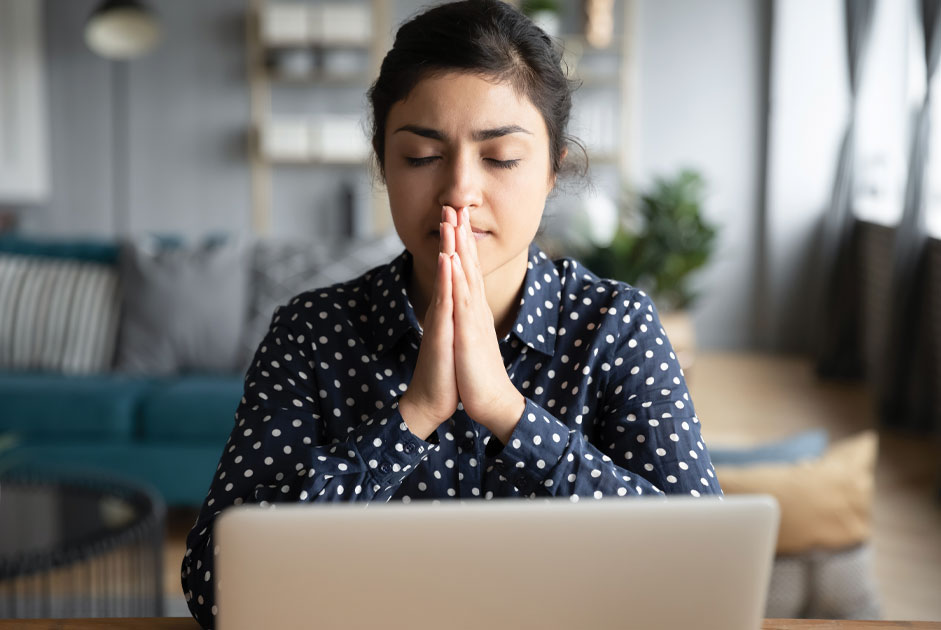“Don’t pray for better days, pray for a better attitude to withstand uncertain days” – Mac Duke, The Strategist
The recent pandemic taught us more than we ever wanted – or thought we needed – to know about getting through uncertainty. Some managed better than others, turning to healthy coping mechanisms, while others succumbed to harmful activities and substances. Some came out stronger for the experience while others remain shaken, wary, untethered.
We weren’t alone in our uncertain isolation, and we are still here, thanks in large part to our ability to cope with the new, the unknown and the inherently uncertain. When we step back, we realize that we know this place well because we’ve spent our lives amidst uncertainties large and, thankfully, small. A baby cries, not knowing when it will be soothed; a child wonders if she will make the team; a teen frets about being accepted into college; a young wife wonders if they can make ends meet; a woman is anxious about her cancer returning. The stakes can get pretty high, can’t they?
Retooling
“Uncertainty is a quality to be cherished, therefore – if not for it, who would dare to undertake anything?” – Auguste de Villiers de L’Isle-Adam
Uncertainty accompanies us at every turn, making us feel as if we have no control at all in this life. And it’s true: we control very little, except that is, how we cope, how we manage, and how we carry on. So here’s to all of us for trying, for doing our best. And maybe, with a few refreshed tools in hand, we can make a greater peace with uncertainty. Here are my top picks from the insightful sources I’ve tapped into; some of them may surprise you.
Six tools for dealing with an intense moment of uncertainty:
- Acknowledge that you are experiencing uncertainty and that, right now, it is getting to you. Make that okay by being compassionate with yourself.
- Be mindful of your breath. When we are anxious and stressed about what’s uncertain in our world, our breathing becomes more rapid and shallow. Work on slowing it down and deepening it.
- Move around. Doing so creates a physical interruption that helps to reduce stress and quell anxious thoughts. Even better, get outside to take in the natural beauty and fresh air.
- Reach out to someone you know will listen to you with kindness, not judgment.
- Focus on the present. Instead of catastrophizing, begin to train your mind to refocus its attention on the present. The more you do so, the less uncertainty will get the better of you.
- Take the reins of what you can control. Take one positive action that’s aligned with your values or your goals. Perhaps you extend a random act of kindness or simply weed the garden – both of which you control!
Three tools for the long haul:
Challenge your need for certainty. Remind yourself that many good things transpire unexpectedly while we are catastrophizing or fearing the worst.
- Adopt a stoical, realistic view of certainty. In other words, make peace with the fact that life is one wild journey of joy and pain that rides on the wings of uncertainty. Reflect on how you have traveled through all of it, mostly intact!
- Know your triggers. Maybe listening to the news, getting lost in social media posts, or that weekly call to your ever-anxious Aunt Bertha triggers your uncertainty fears. Plan ahead by modifying your exposure to triggers because doing so is largely within your control.
- Proactively take good care of yourself. You know the drill: a healthy diet, enough exercise, ample relaxation and positive relationships are key to supporting your ability to manage uncertainty.






















